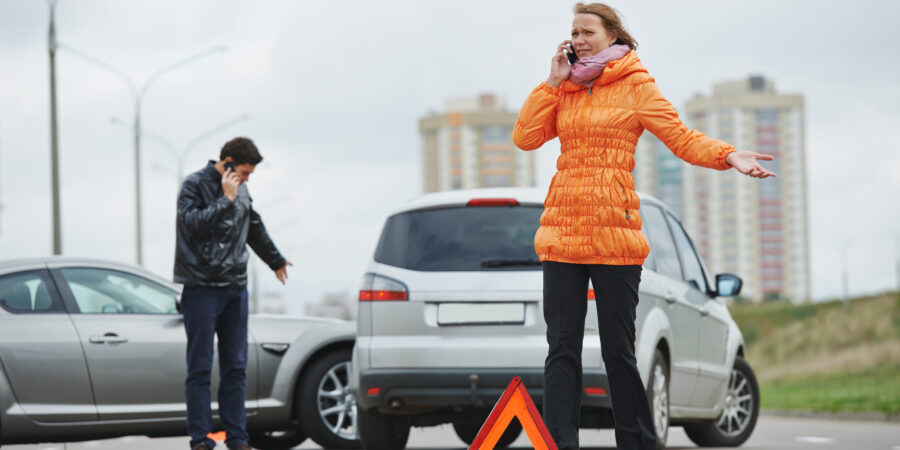Steps to Take After Being Involved in an Out of State Car Accident
Whether you were on vacation or engaged in business affairs, you went out of state, and that was when you unfortunately got in a car accident. Now you’re wondering how this will affect the process of filing a personal injury claim.
The answer involves legal concepts like liability and jurisdiction, and it can be difficult to comprehend them without the aid of a car accident attorney. We have you covered here at JT Legal Group. Once it becomes clear that you can mount a strong case against the other driver, we’ll assist you with each step. Its strength, though, may depend on whether you already took certain steps right after the accident.
What Did You Do at the Accident Scene?
Though easier said than done, car accident victims should remain calm and collect as many details as they can of the accident. This could mean writing down what happened; it will definitely mean gathering eyewitnesses and taking down their testimony. Victims should also record what was damaged, which can include not just the vehicle but also any valuable personal belongings, and take photographs of damage. Eyewitness testimony, photographs, and your own written narrative can greatly facilitate the filing process later on.
Besides that, it’s understood that victims will call the police and, if injuries arose, an ambulance. It’s also expected that victims will cooperate with the police and with one another, exchanging the necessary information. Under the California Vehicle Code, that would be one’s:
- Name and address
- VIN and license plate number
- Insurance information
If the vehicle belongs to someone else, the driver must give that person’s contact information as well. Failure to provide the above information is an infraction and will result in a fine. It may also weaken a plaintiff’s personal injury claim.
The police can investigate the accident then and there, writing up a report and determining who was at fault and to what degree. This could greatly increase the chances of a successful claim. The next step you would take, then, is to contact your insurance company and relate all that you remember.
Did You Seek Immediate Medical Attention?
So you recorded the property damage you incurred, but how have you recorded and kept track of your injuries? Accident victims should seek out medical attention as soon as possible, as that will allow them to know the full scope of their injuries and get comprehensive medical care. It becomes even more pressing considering how many accident injuries show delayed symptoms. It may be days or even weeks before you suddenly feel the effects of:
- A concussion
- Whiplash
- Spinal disc herniation
- Soft tissue damage in the spine
Delayed symptoms can range from headaches and neck pain to insomnia, mood changes, and depression. Though the delay may make you think the symptoms are unrelated to the crash, it’s better to check anyway with your doctor.
Mounting a Personal Injury Case
The steps outlined above are not unique to an out-of-state accident; what follows will be. First, you are subject to the laws of whatever state you happen to be in. Liability in an accident is determined by the laws of the state where it happened. This holds true even if all the drivers involved in the accident are from a different state. And if you take the other driver to court, it will most likely be in the state where the accident took place, for it is that court that can claim jurisdiction.
Understanding Jurisdiction
This term simply means the court’s authority to hear a case. Broadly speaking, it’s the factor that decides whether a case is heard in a municipal, county, state, or federal court. Here, we’re concerned with what state you would hold the defendant liable in: in other words, what state would have “personal jurisdiction” over the defendant.
- California courts have this over all residents and all companies that do business here.
- The Code of Civil Procedure gives courts in this state authority over out-of-state drivers in a limited number of situations. A significant factor is whether the out-of-state driver has some “minimum contact” with this state, e.g. works here, owns property here, or commits a negligent act here.
So if an accident takes place in California, there are three possibilities.
- If you live here but the other driver does not, you would go through the courts here because the other driver has had “minimum contact” with the state.
- If the other driver lives here and you live elsewhere, you could settle matters in your own state via small claims court. Otherwise, the courts here have jurisdiction because the other driver is a resident.
- If both drivers are non-residents, you could only sue the defendant in your state if the defendant consents to it. Otherwise, you would sue here or in the defendant’s home state.
A fourth possibility should be mentioned, involving businesses. Let’s say you were injured by a trucker or other employee of an out-of-state business. You could sue here, where the accident occurred, or in the state where that business resides, i.e. where it was incorporated or has established its headquarters. However, if neither you nor the employee are from this state, check to see if the business has “minimum contact” with your home state and try pursuing a claim there.
Understanding Liability
As we said, you determine who was at fault in an accident based on the laws of the state where it took place. California is a comparative negligence state, which means it recognizes that each party may have contributed to an incident and thus be partially at fault for it. However, unlike states that refuse compensation to plaintiffs who take the majority of the blame, California operates under a “pure” comparative negligence rule. Technically, victims can file a claim even if they are deemed 99% at fault.
Of course, the greater your degree of fault, the less likely your success will be. And any percentage of fault will reduce the damages you receive by that exact percentage. For instance, a plaintiff who’s 10% at fault but who recovers $20,000 in damages will have $2,000 deducted from the total. A personal injury attorney can help you decide between filing a third-party insurance claim and accepting what your own insurer offers.
Insurance Considerations
Your insurance policy will cover you no matter what state the accident took place in, and so the process of filing with your own insurance company will not alter. If you’re taking your claim to a different state, though, you will need to know that state’s insurance requirements in addition to whether it’s an at-fault or no-fault state. Our car accident attorney can explain the details to you personally.
Statute of Limitations
Note that the statute of limitations on personal injury cases will differ from state to state. Here, victims have two years from the date of an accident to file their claim. If the incident involved property damage but no physical injuries, one has three years.
What Can You Be Covered For?
A successful personal injury claim could cover both your economic, which can be quantified, and non-economic losses, which cannot. Economic losses would be your:
- Vehicle and other property damage
- Medical expenses both past and future
- Lost wages and lose earning capacity
When it comes to medical expenses, record everything. A claim could reimburse you not just for major medical treatments but also for the cost of prescriptions, physical therapy or rehabilitative care, medical equipment like wheelchairs, and any modifications you need made to your vehicle or home on account of a debilitating injury. Travel expenses could be covered as well.
Lost wages refer to the income that the plaintiff would have received if he or she had not been injured whereas lost earning capacity points to the future. Perhaps you can no longer hold the same job or work as vigorously as before because of your injury; damages for lost earning capacity will redress this wrong.
Non-economic losses include pain and suffering and emotional distress. It’s only with the help of a personal injury attorney that plaintiffs can put a reasonable price on these. An expert may need to come in to prove, for instance, that you have suffered from post-traumatic stress disorder as a result of the accident.
Schedule a Free, No-Obligation Consultation
To see who was liable for your accident and whether or not you can file a claim, get in touch with JT Legal Group today. You don’t want to go out of state if necessary to pursue your case; our lawyer will start by telling you your options in that regard. The initial consultation is free of charge.



